PECB ISO 22000 Lead Implementer- Self Study in English
€571
- Self Study mode of training materials
- Includes PECB certification and exam fee (Exam voucher validity 12 months)
- PDF PECB training materials included
- A participation certificate of 31 CPD (Continuing Professional Development) credits will be issued by PECB
- In case of exam failure, you can retake the exam within 12 months, from date of enrollment for free
Description
ISO 22000 Lead Implementer Training Material, Exam and Certification
ISO 22000 Lead Implementer – In the 20th century, humanity saw unprecedented socio-economic changes as well as scientific and technological advances. These factors impacted, among others, how food is produced, processed, and marketed: countries enacted food safety laws, companies began to use scientific methods to make food safer, technology allowed better packaging and quality assurance, and public awareness increased dramatically. Overall, food became safer and more nutritious.
Yet, in the 21st century many challenges remain. According to WHO estimates, 600 million people become sick and 420,000 die each year from unsafe food. Globalization and complex supply chains make controls and traceability more difficult. Climate change is likely to present direct and indirect challenges to food safety. In all of this, food producers will have to overcome new challenges and meet new expectations. However, they are not alone: ISO 22000 is here to help them fulfill their responsibility of ensuring the safety of their products and the well-being of their consumers.
A food safety management system (FSMS) based on ISO 22000 not only can improve a food producer’s measures against foodborne illnesses and diseases, it can also improve their credibility and increase customer awareness on food safety.

ISO 22000 Lead Implementer
Why Should You Attend ISO 22000 Lead Implementer training?
The age of globalization has brought new challenges to all industries, and the food industry is no exception. The origin and safety of food products is a main concern in today’s market. It has become increasingly difficult to have proper knowledge on the production methods and origin of food products. Internationally recognized food safety measures are no longer a privilege; they have become a basic requirement for all organizations that deal with food production or service.
The implementation of a food safety management system (FSMS) is a strategic decision for ensuring the safety of food delivered to the consumer. This training course, developed by PECB, aims to help participants develop the knowledge and skills necessary to support an organization in establishing, implementing, managing, and maintaining an FSMS based on ISO 22000 and other best practices. Implementers play a key role in an organization’s ability to successfully implement and maintain an FSMS.
The training course enables you to help organizations establish processes needed to maintain the quality and safety their products and services, while adhering to all legal, regulatory, and other requirements. As part of this training course, you will learn how to establish controls that proactively prevent noncompliance and contribute to the creation of a culture of safety, integrity, transparency, and openness.
The training course is followed by the certification exam. If you pass, you can apply for the “PECB Certified ISO 22000 Lead Implementer” credential. The “PECB ISO 22000 Lead Implementer” certificate is internationally recognized. It validates your professional capabilities and competences to implement an FSMS in an organization based on the requirements of ISO 22000.
Who Should Attend ISO 22000 Lead Implementer training?
- Managers or consultants involved in food safety management
- Expert advisors interested in mastering the implementation process of a food safety management system
- Individuals responsible for maintaining conformity to the FSMS requirements in an organization
- FSMS team members
Learning Objectives of ISO 22000 Lead Implementer training
- This training course will help you:
- Gain a comprehensive understanding of the concepts, approaches, methods, and techniques used for the implementation and effective management of an FSMS
- Acknowledge the correlation between ISO 22000 and other standards and regulatory frameworks
- Gain the ability to interpret the requirements of ISO 22000 in the specific context of an organization
- Develop the necessary knowledge and expertise to support an organization in effectively planning, implementing, managing, monitoring, and maintaining an FSMS
- Acquire the expertise to advise an organization in implementing FSMS best practices
Educational Approach
- This training course is participant centered and contains:
- Theories, approaches, and best practices used in food safety management system implementation
- Lecture sessions illustrated with practical examples based on a case study that includes role-playing and discussions
- Interaction between participants by means of questions and suggestions
- Exercises, which are a simulation and a preview of the certification exam
Prerequisites
The main requirements for participating in this training course are a fundamental understanding of food safety concepts, a basic knowledge of ISO management system standards, as well as a general understanding of ISO 22000 and the MS implementation principles.
Download ISO 22000 Lead Implementer Candidate Handbook
Course agenda
- Day 1: Introduction to ISO 22000 and the initiation of an FSMSDay 2: Implementation plan of an FSMS
Day 3: Implementation of an FSMS
Day 4: Performance evaluation, continual improvement, and preparation for the certification audit
Day 5: Certification exam
Examination
- The PECB Certified ISO 22000 Lead Implementer exam fully meets the requirements of the PECB Examination and Certification Program (ECP). It covers the following competency domains:Domain 1: Fundamental principles and concepts of a food safety management system
Domain 2: Food safety management system requirements
Domain 3: Planning of an FSMS implementation based on ISO 22000
Domain 4: Implementation of an FSMS based on ISO 22000
Domain 5: Monitoring and measurement of an FSMS based on ISO 22000
Domain 6: Continual improvement of an FSMS based on ISO 22000
Domain 7: Preparation for an FSMS certification audit
For specific information about exam type, languages available, and other details, please visit the List of PECB Exams and the Examination Rules and Policies.
Certification
- Upon the successful completion of the exam, you can apply for one of the credentials shown in the table below. You will receive a certificate once you fulfill all the requirements related to the selected credential. For more information about ISO 22000 certifications and the PECB certification process, please refer to the Certification Rules and Policies.The PECB ISO 22000 Implementer certification scheme has the following requirements:
Credential Exam Professional experience FSMS project experience Other requirements PECB Certified ISO 22000 Provisional Implementer PECB Certified ISO 22000 Lead Implementer Exam or equivalent None None Signing the PECB Code of Ethics PECB Certified ISO 22000 Implementer PECB Certified ISO 22000 Lead Implementer Exam or equivalent Two years: One year of work experience in Food Safety Management Project activities: a total of 200 hours Signing the PECB Code of Ethics PECB Certified ISO 22000 Lead Implementer PECB Certified ISO 22000 Lead Implementer Exam or equivalent Five years: Two years of work experience in Food Safety Management Project activities: a total of 300 hours Signing the PECB Code of Ethics PECB Certified ISO 22000 Senior Lead Implementer PECB Certified ISO 22000 Lead Implementer Exam or equivalent Ten years: Seven years of work experience in Food Safety Management Project activities: a total of 1,000 hours Signing the PECB Code of Ethics
General Information
- Certification fees are included in the exam price.
- Participants will be provided with the training course material containing over 450 pages of explanatory information, examples, best practices, exercises, and quizzes.
- An attendance record worth 31 CPD (Continuing Professional Development) credits will be issued to the participants who have attended the training course.
- In case candidates fail the exam, they can retake it within 12 months following the initial attempt for free

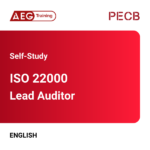
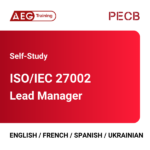

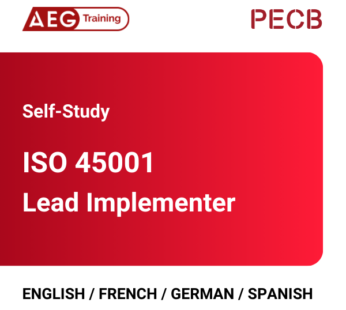
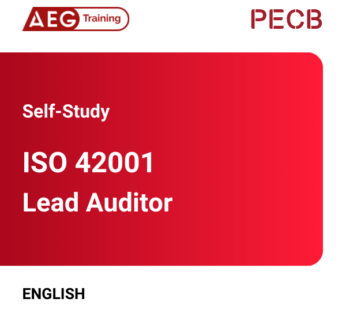
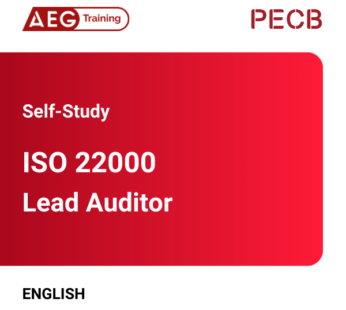
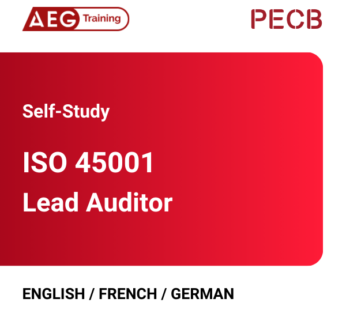
Reviews
There are no reviews yet.